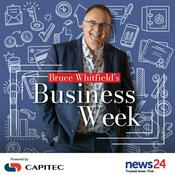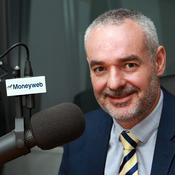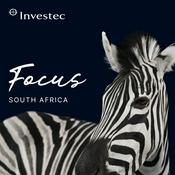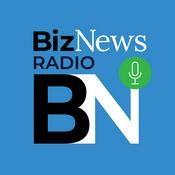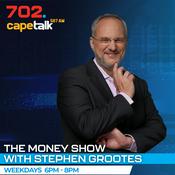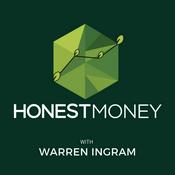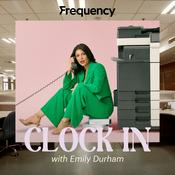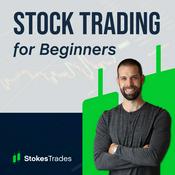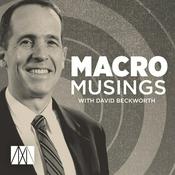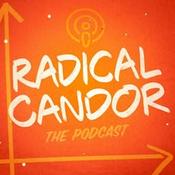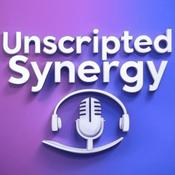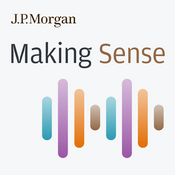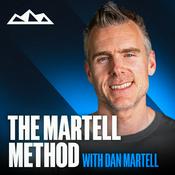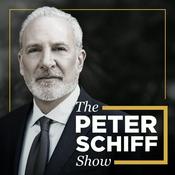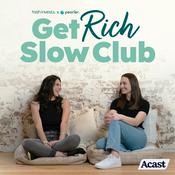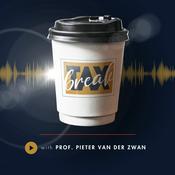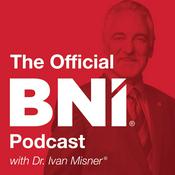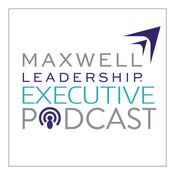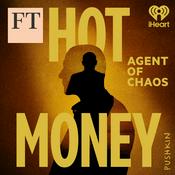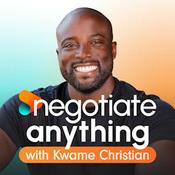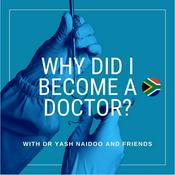291 episodes
Be Brilliant Urgently, Advancing Parkinson’s Research Through Partnerships with Michelle Durborow
2026/2/18 | 32 mins.Breakthrough therapies do not begin with commercialization, yet without it, many breakthroughs never reach patients. That tension sits at the center of this conversation with Michelle Durborow, Vice President of Research Operations at the Michael J. Fox Foundation for Parkinson’s Research, where she oversees grant administration and program operations for Aligning Science Across Parkinson’s (ASAP).
Michelle explains how a patient-driven mission influences the foundation’s research funding strategy, particularly when it comes to early, high-risk science. From the outset, her team evaluates not only scientific merit, but also what each project makes possible, the decisions it informs, the risks it reduces, and how it contributes to the long-term therapeutic pipeline.
The episode also takes a look at intellectual property. Michelle shares why MJFF views IP not as a barrier, but as a practical mechanism that enables investment, partnership, and ultimately patient access. By removing itself from IP ownership, the foundation reduces friction while still supporting responsible protection, alignment of incentives, and meaningful data-sharing practices.
Michelle brings an operational perspective that resonates strongly with the tech transfer community. She speaks about bottlenecks, collaboration dynamics, and the importance of engaging earlier, before agreements become urgent and negotiations become strained. This strategic conversation offers lessons that extend well beyond Parkinson’s research.
In This Episode:
[01:50] Michelle outlines the Michael J. Fox Foundation’s mission to eliminate Parkinson’s disease while improving treatments for patients today.
[02:16] Technology transfer is the pathway that moves discoveries from ideas into scalable therapies and diagnostics.
[03:05] We discuss how patient impact directly connects to commercialization and translational strategy.
[04:10] Why MJFF evaluates translation potential at the very start of proposal review.
[04:55] Early-stage projects are assessed based on what decisions they inform and which risks they retire.
[06:12] Intellectual property is positioned not as a barrier, but as a bridge enabling investment and development.
[07:05] How patents provide confidence for partners navigating long, expensive R&D pathways.
[08:02] MJFF’s choice not to claim IP ownership is highlighted as a friction-reducing strategy.
[09:10] Michelle emphasizes that misaligned incentives not patents are what typically stall progress.
[11:16] Bottlenecks such as prolonged MTAs and data-use negotiations are identified as major slowdowns.
[12:11] She notes that unclear access terms and fragmented ownership frequently delay research momentum.
[12:33] The importance of bringing experts into agreement structuring is underscored.
[13:07] Michelle describes initiatives like the LURC2 Investigative Therapeutics Exchange and the LITE consortium.
[14:02] Early engagement with technology transfer offices is presented as essential for smoother partnerships.
[16:19] Collaboration lessons emerge: align goals early and define roles clearly across stakeholders.
[17:10] She advocates running science and deal mechanics in parallel rather than sequentially.
[18:02] Straightforward, repeatable agreement frameworks are credited with reducing negotiation friction.
[20:15] Trust is described as something built through transparency about incentives and risks.
[22:05] Michelle shares Michael J. Fox’s guiding principle: “purity of motives.”
[25:51] She reflects on her career shift from lab science to research operations and systems design.
[27:05] Michelle highlights MJFF resources, including guides, webinars, and the Buddy Network.
[28:37] Looking ahead, she expresses optimism about precision medicine and biomarker-driven care.
[29:55] Her closing message is to move faster together and keep patients at the center.
Resources:
AUTM
The Michael J. Fox Foundation for Parkinson’s Research
Michelle Durborow - LinkedIn
Aligning Science Across Parkinson’s (ASAP)
Parkinson’s Progression Markers Initiative (PPMI)
Targets to Therapies Program
Parkinson's Buddy Network
Parkinson’s IQ + You EventsRebranding for Impact, How URI Is Scaling Research Commercialization with Peter Rumsey and Allison Markova
2026/2/11 | 53 mins.Real-world impact doesn’t happen by accident. It takes intention, structure, and a willingness to rethink how research moves beyond the university. That’s the inflection point the University of Rhode Island Research Foundation has reached as it rebrands to URI Innovations. This shift signals more than a name change. It reflects a broader evolution into a campus-wide hub for technology translation, entrepreneurship, and strategic partnership.
My guests today are Peter Rumsey and Allison Markova of URI Innovations. Peter serves as AVP of Innovation and Entrepreneurship. A former military officer with more than 30 years of private-sector business development experience, he has been instrumental in launching the Rise Up initiative supported by the U.S. Office of Naval Research. He was recently honored as a Career Achiever by Providence Business News for his work advancing innovation and economic development in Rhode Island and beyond.
Peter also serves as a part-time instructor in innovation and entrepreneurship at URI, is Chair Emeritus at Leadership Rhode Island, and currently chairs the Rhode Island State Innovation Hub, or RI Hub. Allison Markova is Director of Technology Transfer and Innovation Partnerships at URI Innovations, bringing deep experience from her previous role as Director of Technology Transfer at the Woods Hole Oceanographic Institution.
On today’s show, we explore what’s driving the rebrand, how initiatives like Rise Up are reshaping entrepreneurship training on campus and across state lines, and how URI is building momentum through its inaugural tech showcase. It’s a look at how early engagement, integrated IP strategy, and a strong regional ecosystem can turn research strength into sustained real-world impact.
In This Episode:
[03:15] The rebrand from URI Research Foundation to URI Innovations is explained, clarifying the shift from a confusing legacy name to a forward-facing identity centered on innovation and entrepreneurship.
[04:24] Peter outlines why now was the right moment for change, pointing to URI’s R1 status, research growth, and the need to scale translation capacity.
[05:48] A move beyond a patents-first mindset is emphasized, focusing instead on pairing intellectual property with commercialization to create true innovation.
[07:09] Allison describes the brand promise of transforming discovery into impact through clearer pathways for faculty, students, and industry partners.
[08:31] Early engagement becomes a central theme as URI Innovations reframes itself from a process office to a strategic partner in exploration and execution.
[09:47] The three pillars of IP stewardship, venture development, and strategic partnerships are presented as integrated functions rather than silos.
[11:06] Strategic partnerships range from sponsored research to startups embedding within new innovation centers and incubators.
[12:26] Ocean and blue technology leadership takes center stage, with examples including Regent Craft and collaborations with the Naval Undersea Warfare Center.
[16:26] Rise Up is introduced as a tri-state, Navy-supported initiative focused on dual-use technologies and workforce development.
[18:47] The Defense Department’s dual-use philosophy is explained as startups must succeed commercially rather than rely solely on defense funding.
[21:09] Undergraduate students tackle real defense and industry challenges using Steve Blank’s business model canvas and Bill Aulet’s disciplined entrepreneurship framework.
[22:57] The Patents to Products program provides gap funding and mentorship to translate university IP into market-ready ventures.
[24:42] Faculty Innovation Fellows integrate entrepreneurship tools directly into diverse curricula, from engineering to the arts.
[26:26] The Ideation Studio invites students, faculty, and community members into a 10-week sprint from idea to MVP and live pitch.
[28:59] Impact metrics go beyond disclosures and startups, tracking cultural change through increased early engagement.
[30:33] Growth in pitch night participation from a handful of teams to double-digit ventures signals a shift in campus culture.
[32:48] SWEPT, an AI-driven street-sweeping optimization platform, illustrates how student innovation can scale globally.
[34:10] Juice Robotics demonstrates how affordable ocean sensing technologies can disrupt traditionally high-cost field operations.
[36:11] The inaugural Tech Showcase positions URI alongside regional leaders and launches Rhode Island Startup Week.
[38:31] A public goal to create funded startups each year reflects a bold, action-oriented approach to building momentum.
[41:03] Allison shares why she joined URI Innovations, citing institutional commitment and cultural readiness for growth.
[42:34] Tech transfer is reframed as an impact platform rather than a patents office, emphasizing storytelling and amplification.
[43:50] Commercialization is positioned as complementary to scholarship, expanding researchers’ avenues for impact without compromising academic missions.
[46:32] Looking ahead, Peter outlines the vision for a “Rhody Innovation Hub” built as both a physical space and an entrepreneurial ethos.
[49:48] Closing advice includes just start, take shots on the goal, and don’t let perfection be the enemy of progress.
Resources:
AUTM
The University of Rhode Island
Pete Rumsey - URI
Pete Rumsey - LinkedIn
Allison Markova - URI
Allison Markova - LinkedIn
URI RISE-UP
RIHub
Office of Naval ResearchHow the Technology Transfer Handbook Was Built in Five Days with James Filpi, Joy Goswami, Michael Samardzija, and Alysa Khouri
2026/2/04 | 1h 1 mins.Technology Transfer: A Policy Primer for the Commercialization of Intellectual Property and Invention offers a practical policy and practice framework designed for use across institutions and jurisdictions. In this episode, we talk about how the handbook came together, including the decision to use the BookSprints methodology, a structured five-day collaborative process used to develop a complete policy and practice guide.
I’m joined by four remarkable individuals who played central roles in the creation of the handbook. James Filpi, JD, from the U.S. Department of Commerce’s Commercial Law Development Program, envisioned the project and championed its development at CLDP, an organization focused on strengthening legal and regulatory frameworks that support commerce worldwide.
Joy Goswami, MBA, Director of Licensing and Commercialization Initiatives at the Research Foundation for the State University of New York and a member of AUTM’s leadership, brings experience from one of the nation’s largest research funding organizations and the broader technology transfer community.
Michael Samardzija, PhD, JD, partner at Womble Bond Dickinson (US) LLP, brought a practitioner’s perspective from years of legal and IP work in the technology transfer space. Alysa Khouri, who facilitated the BookSprints process, kept the group moving and helped structure the work over the five days.
I also want to acknowledge the broader group who participated in the BookSprint, including Edward Blocker of the Intellectual Property Owners Association; Davit Ghazaryan and Naira Campbell-Kyureghyan from the American University of Armenia; Priya Prasad of the U.S. Department of Commerce’s Commercial Law Development Program; Richard S. Cahoon of Cornell University; and myself, Lisa Mueller, from Casimir Jones.
The handbook was developed at Caboose Farm near Camp David, Maryland, in August 2025, where the group was sequestered for five intensive days. Let’s dive into the conversation.
In This Episode:
[00:33] We just finished Technology Transfer: A Policy Primer for the Commercialization of Intellectual Property and will be sharing the collaborative process we used.
[04:20] James Filpi explains the original vision for the handbook, including CLDP’s focus on giving policymakers and technology transfer managers a practical framework for building innovation ecosystems in emerging markets.
[06:18] Alysa Khouri explains the BookSprints methodology, including its five-day structure and how the process moves from shared framing to writing and intensive cross-editing.
[10:45] The advantages of overnight editing, illustration support, and working across time zones are discussed as part of the BookSprints model.
[15:33] Michael Samardzija reflects on the intensity of the five-day sprint and how early uncertainty gave way to structure once roles, chapters, and editing rhythms were established.
[17:46] Joy Goswami describes how different institutional and professional perspectives were aligned into a single, coherent handbook.
[20:35] The decision to work in seclusion at Caboose Farm near Camp David is discussed, including how the setting supported focus and collaboration.
[25:20] The day-to-day rhythm of the sprint is described, from early mornings and shared meals to writing, revising, and late-night editing.
[31:56] The organization and scope of the handbook are outlined, including its progression from IP fundamentals to ecosystem development and emerging trends.
[34:15] How policymakers, universities, tech transfer offices, startups, and investors can use the handbook is explored.
[37:39] The decision to release the handbook under a Creative Commons license is discussed, along with why open access was critical to its use in training, policy development, and global adaptation.
[43:23] Reflections on what made this BookSprint distinctive emphasize collaboration, shared purpose, and practical outcomes.
[47:13] Participants reflect on what surprised them most about the process, including how quickly a coherent, high-quality handbook came together.
[54:07] Next steps are outlined, including workshops, training programs, legislative drafting support, and international rollout plans.
Resources:
AUTM
James D. Filpi - CLDP
James D. Filpi - LinkedIn
Joy Goswami - The State University of New York Research Foundation
Joy Goswami - LinkedIn
Michael Samardzija, Ph.D. - Womble Bond Dickinson
Michael Samardzija - LinkedIn
Alysa Khouri - LinkedIn
Technology Transfer Guidebook
Commercial Law Development Program CLDP
BookSprints
Creative Commons
Caboose Farm- Last week, we kicked off a special two-part series with three of the five women joining the AUTM Board of Directors in February 2026. Today, we’re completing that conversation with Laura Schoppe, Chief Commercialization Officer at TechPipeline, and Patricia Stepp, Assistant Vice President for Technology Transfer at Rice University.
For listeners who may not yet be familiar with Laura and Patricia, here’s a brief look at their backgrounds. Laura Schoppe is the Chief Commercialization Officer at TechPipeline, and the founder of Fuentek, which she built into one of the world’s leading technology transfer consulting firms. Over the course of her career, Laura has helped universities, government agencies, nonprofits, and Fortune 500 companies proactively and strategically manage intellectual property, drawing on deep expertise in open innovation and IP portfolio management.
Patricia Stepp is the Assistant Vice President for Technology Transfer at Rice University, where she leads the strategic planning and day-to-day operations of the Office of Technology Transfer. With a background in biomedical engineering, she brings a thoughtful, hands-on perspective shaped by her earlier work at Arizona State University’s Skysong Innovations, where she launched a diversity initiative focused on expanding commercialization opportunities.
In This Episode:
[03:05] Patricia reflects on her background in biomedical engineering and what continues to motivate her about moving discoveries from the lab into real-world impact.
[04:45] The appeal of tech transfer is framed as constant learning, curiosity, and helping researchers see their work make a difference beyond campus.
[06:10] Laura explains what motivated her to found Fuentek, reflecting on her early work in government and university environments and the gaps she saw in how technologies were being commercialized.
[08:15] Building a fully virtual tech transfer consulting firm long before remote work was common proves to be a forward-looking decision.
[10:30] Internal and external perspectives on tech transfer are compared, highlighting why diverse vantage points strengthen strategy and governance.
[12:05] Board diversity is discussed as extending beyond identity to include professional background, institutional scale, and ecosystem role.
[14:10] Returning to board service is driven by timing, experience, and the freedom to speak more candidly about systemic pressures.
[15:45] AUTM’s role as a welcoming, formative professional community is cited as a major reason for stepping into board leadership.
[17:30] Budget constraints, shifting federal funding, and rising caseloads are identified as ongoing realities for tech transfer offices.
[18:55] The need to operate more strategically, including being more selective about what to patent, is emphasized as resources tighten.
[20:05] Artificial intelligence is discussed as a useful support tool for routine tasks, but not yet a replacement for expert judgment.
[21:40] Caution is urged against rushing AI adoption, with a reminder that many tools remain uneven or immature.
[23:10] The importance of proactively educating policymakers about how AI is actually used in tech transfer is highlighted.
[24:50] Looking ahead five years, the focus shifts toward becoming more proactive, efficient, and licensing-driven rather than reactive.
[26:20] Strengthening industry and venture capital relationships is seen as essential to improving commercialization outcomes.
[28:10] AUTM’s collaborative culture is highlighted as a defining strength that lifts the entire community.
[29:55] Expanding participation in committees and board service is framed as key to AUTM’s long-term resilience.
[31:15] Everyday technologies influenced by university tech transfer are cited as a reminder of the field’s broad, often unseen impact.
[33:10] Advice for those entering the field emphasizes gaining industry experience and leaning into networking and shared learning.
[35:05] Recharging outside of work ranges from creative hobbies to food, music, and film, underscoring the human side of the profession.
Resources:
AUTM
Laura Schoppe - LinkedIn
TechPipeline
Fuentek
Patricia Stepp - Rice University
Patricia Stepp - LinkedIn Meet AUTM’s New Board Members: Katie Butcher, Felicia Metz, and Maithili Shroff (Part 1)
2026/1/21 | 44 mins.Over the next two weeks, we’re doing something a little different, with a special two-part conversation featuring five extraordinary women who will be joining the AUTM Board of Directors in February 2026. To give us the space to really dig in, we split these conversations across two episodes, so we could spend more time on the perspectives, experiences, and leadership each of these new board members brings to the tech transfer community.
In this episode, we’re joined by Felicia Metz from the University of Maryland Ventures, Maithili Shroff from the University of New Hampshire, and Katie Butcher from Northwestern University. Next week, the conversation continues with Patricia Stepp of Rice University and Laura Schoppe, founder of TechPipeline, bringing in additional viewpoints from both inside and outside the university setting.
Katie Butcher brings an MBA from Notre Dame and a Master of Science in Law from Northwestern into her role, giving her a strong mix of business and legal experience that shapes how licensing and commercialization work at Northwestern. Felicia Metz is an Associate Director at University of Maryland Ventures, where her work spans patent prosecution, building and managing IP portfolios, and licensing strategy.
Maithili Shroff is a Licensing Manager at the University of New Hampshire, an R1 institution, where she draws on her PhD training to support innovation and intellectual property commercialization, with a perspective shaped by working across a wide range of research areas. Together, these three leaders reflect the breadth of backgrounds, expertise, and lived experience shaping the future of tech transfer, and they offer a thoughtful look at why this moment matters for the profession and for AUTM’s leadership going forward.
In This Episode:
[00] This is a special two-part series introducing five women who will join the AUTM Board of Directors in February 2026.
[03:26] Katie shares her path to tech transfer. She has an MBA and has worked in the legal field. She spent her first 20 years in the entertainment industry.
[04:33] Her background was strong, but she also had a lot of learning on the job in science, technology, and learning. It's been an exciting adventure being in this field.
[05:58] Felicia entered tech transfer as a student and unexpectedly built a long-term career in the field.
[08:10] She explains how the profession has evolved toward specialization and complementary skill sets across offices.
[09:41] Maithili describes how her PhD led her to question what happens to research after publication.
[11:22] She shares how the AUTM fellowship and the collaborative culture of the community shaped her career path.
[13:18] The panel discusses why tech transfer welcomes professionals from many backgrounds, not just STEM or law.
[15:23] Curiosity, flexibility, and comfort with ambiguity are emphasized as essential traits for success.
[16:49] Why running for the AUTM Board felt timely and meaningful.
[18:42] The importance of representing non-STEM and operational roles in tech transfer leadership.
[20:14] Advocacy, higher-education pressures, and why board service feels urgent right now.
[21:20] We discuss funding uncertainty, policy shifts, and broader challenges facing tech transfer.
[24:02] Budget constraints, staffing pressures, and the reality of doing more with fewer resources are explored.
[26:09] The importance of telling the tech transfer story and demonstrating real-world impact comes into focus.
[29:10] Data and metrics are discussed as tools for visibility, accountability, and storytelling.
[32:18] Artificial intelligence enters the conversation as both a disruptive force and a potential support tool.
[35:10] The panel considers how AI could improve efficiency without replacing human judgment.
[38:00] The guests share their hopes for where tech transfer and AUTM could be in five years.
[39:50] Felicia shares a personal story that underscores why tech transfer work truly matters.
[43:47] Reflections on partnership, service, and shared success.
Resources:
AUTM
Katie Butcher - Northwestern University
Katie Butcher - LinkedIn
Felicia Metz - University of Maryland
Felicia Metz - LinkedIn
Maithili Shroff - University of New Hampshire
Maithili Shroff - LinkedIn
AUTM Better World Project
Patents, Peer Review, and Policy: What Congress Needs to Understand Now with Kate Zernike
Lessons From the WIPO-AUTM Knowledge and Technology Transfer Summit with Steve Susalka
More Business podcasts
Trending Business podcasts
About AUTM on the Air
AUTM on the AIR is the weekly podcast that brings you conversations about the impact of research commercialization and the people who make it happen. Join us for interviews with patent and licensing professionals, innovators, entrepreneurs, and tech transfer leaders on the issues and trends that matter most.
Podcast websiteListen to AUTM on the Air, Aspire with Emma Grede and many other podcasts from around the world with the radio.net app
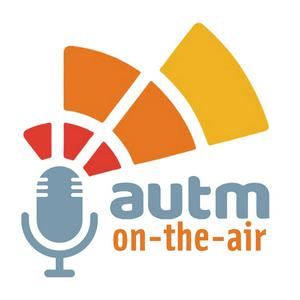
Get the free radio.net app
- Stations and podcasts to bookmark
- Stream via Wi-Fi or Bluetooth
- Supports Carplay & Android Auto
- Many other app features
Get the free radio.net app
- Stations and podcasts to bookmark
- Stream via Wi-Fi or Bluetooth
- Supports Carplay & Android Auto
- Many other app features


AUTM on the Air
Scan code,
download the app,
start listening.
download the app,
start listening.



